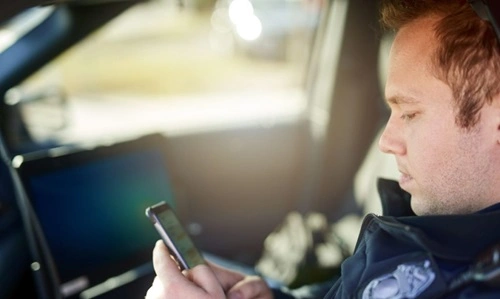Yes, it is generally illegal to look through someone’s phone without their permission in the United States. Unauthorized access to another person’s phone can violate privacy laws and could lead to criminal charges depending on the circumstances and the intent behind the act.
Legal Foundations of Phone Privacy
- Expectation of Privacy
- Phones often contain sensitive personal information, such as messages, photos, financial details, and emails. The law recognizes a reasonable expectation of privacy for personal devices, making unauthorized access potentially unlawful.
- Privacy laws such as the Electronic Communications Privacy Act (ECPA) protect electronic communications and prohibit unauthorized access to personal devices.
- Trespass and Unauthorized Access
- Accessing someone’s phone without consent can be considered trespass to personal property.
- In some states, unauthorized access to someone’s phone may violate laws against unauthorized computer or device access.
- Intent and Consequences
- The legal consequences can escalate if the unauthorized access involves malicious intent, such as stealing data, sharing private information, or committing identity theft.
Potential Criminal Charges
- Invasion of Privacy
- Looking through someone’s phone without consent can constitute an invasion of privacy, a civil offense that could lead to lawsuits and monetary damages.
- Computer Fraud and Abuse Act (CFAA)
- If unauthorized access to a phone includes accessing online accounts or data, it could violate federal laws such as the CFAA, which prohibits unauthorized access to computer systems.
- Theft or Misuse of Information
- If information is taken from the phone without permission and used maliciously, additional charges like theft, harassment, or defamation could apply.
- State-Specific Laws
- Many states have laws prohibiting unauthorized access to electronic devices. For example:
- California Penal Code Section 502 criminalizes unauthorized access to another person’s electronic device.
- Similar laws exist in states like Texas, New York, and Florida.
- Many states have laws prohibiting unauthorized access to electronic devices. For example:
Civil Consequences
- Lawsuits for Damages
- A person whose phone was accessed without consent may sue for invasion of privacy or emotional distress, especially if private information was shared or misused.
- Restraining Orders
- If unauthorized access is part of harassment or stalking, victims can seek restraining orders to protect themselves.
Exceptions to Privacy Laws
- Parent-Child Relationships
- Parents generally have the legal right to access their minor children’s phones, as they are typically responsible for their care and well-being.
- This right does not extend to adult children.
- Employer-Owned Devices
- Employers may access phones provided to employees for work purposes, but this must comply with internal policies and state laws.
- Legal Authority
- Law enforcement officials can access a person’s phone, but only with a warrant or legal justification, under the Fourth Amendment.
Practical Implications
While the legal consequences for looking through someone’s phone without permission can be severe, they often depend on the specific circumstances. For example:
- In a Relationship
- If one partner looks through the other’s phone, it may not lead to criminal charges unless the act involves fraud or malice. However, it can still lead to civil consequences or relationship issues.
- Friendships or Coworkers
- Unauthorized access by friends or coworkers can escalate into legal disputes, particularly if sensitive data is shared or misused.
Common FAQs
Q1. Is it illegal to look through a spouse’s phone?
Ans: Yes, unless explicit permission is given. Being married does not automatically grant the right to access each other’s devices.
Q2. Can parents check their children’s phones?
Ans: Yes, parents have the right to access their minor children’s phones to ensure their safety and well-being.
Q3. What are the penalties for unauthorized phone access?
Ans: Penalties vary by state and intent, but they can include fines, imprisonment, or civil liability for invasion of privacy.
Q4. Is it illegal to take screenshots of someone else’s phone content?
Ans: If done without consent and the content is private, it may violate privacy laws, especially if shared without permission.
Q5. Can someone press charges if I look at their phone briefly?
Ans: Brief unauthorized access may not lead to criminal charges but could result in civil claims if harm or invasion of privacy is proven.
Conclusion
Looking through someone’s phone without permission is generally illegal and carries both criminal and civil consequences. Phones are considered highly private devices, and unauthorized access can lead to serious legal repercussions. To respect boundaries and avoid potential liability, always obtain explicit consent before accessing another person’s phone.


